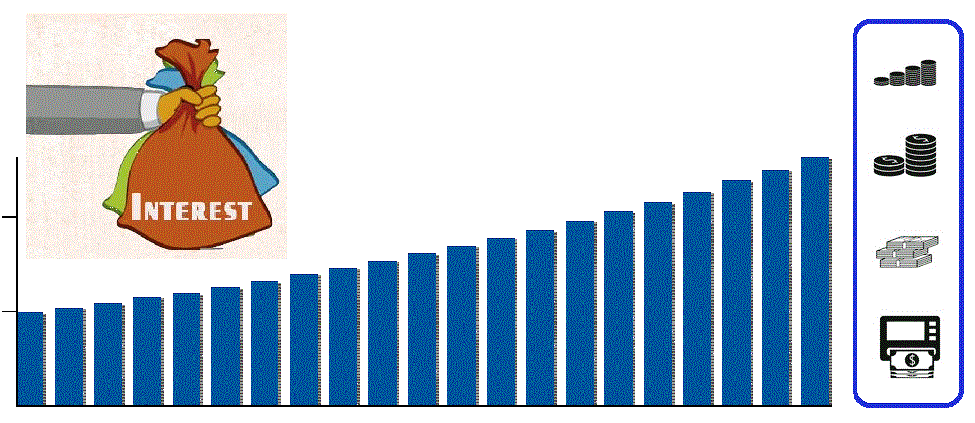All About Interest Income- Recognition and taxability
What is Interest Income ??
Interest Income is the amount earned by an investor on his funds that he allow to utilize to another person, who will give him return on the funds.
Interest can be earned on Saving bank accounts, Fixed Deposits, Recurring Deposit & Post Office saving bank accounts.
One can also be earned on any securities such as Debentures, Bonds, Government Securities, etc. Also, on the loan given to another person for a specified period.
When to recognize the interest income in the books of accounts??
As per AS-9 (Revenue Recognition) Interest income is recognized on time proportionate basis.
For Example
Mr. A lend the amount of Rs. 5,00,000 to Mr. B for his business purpose for a period of 1 year at the rate of 15% per annum. The transaction took place on 16th June and interest is payable quarterly.
Interest will be received as follows:
1. 15th September Rs. 18,750
2. 15th December Rs. 18,750
3 15th March Rs. 18,750
4. 15th June Rs. 18,750
But in order to book the interest income in the books of accounts, we need to recognize the income on time proportionate basis, and not on Cash Basis.
Interest income for the year will be calculated from 16th June to 31st March as follows:
Rs. 59,375 (Rs. 5,00,000 * .15 * 9.5/12).
Further, As per Ind AS 18, Interest Income is to be recognized on effective Interest Rate
Only if Probable future economic benefits & Reliable measurement of revenue, are present.
Taxation and TDS on Interest Income??
Interest earned over Rs.10,000* is taxable under the head "Income from Other Sources" and taxed as per the slab rate.
As per Income Tax Laws, Interest Income can be taxed as per below mentioned methods:
As per Income Tax Laws, Interest Income can be taxed as per below mentioned methods:
- Cash Basis
- Mercantile/Accrual Basis
*Section 80TTA allows deduction on interest earned on saving accounts with banks, Co-operative society & post office.
Different sources of Interest are taxable under the head "Income from Other Sources"
- Interest on Tax Refund
- Interest on Debentures
- Interest on Bonds
- Interest on Government Securities
- Interest on Enhanced Compensation in case of Compulsory Acquisition of House Property
- Interest on Fixed Deposit, Recurring Deposit
- Interest on Loan given to any person such as Corporate, family, friends, etc.
Tax Deducted at Source(TDS)on Interest as per Income Tax Laws as follows:
Section 194A Interest other than Interest on Securities
- Section 194A deal Interest on Fixed Deposit, Recurring Deposit, Interest on Loans and Advances other than banks.
- Only applicable to a resident.
- Payments made to non-residents is to be deducted as per Section 195.
- Limit upto which TDS will not be deducted if the Payer is Bank, Post Office or Co-operative Society is for Senior Citizen Rs. 50,000 and for Others Rs.40,000.
- Limit upto which TDS will not be deducted if the Payer is other than Bank, Post Office or Co-operative Society is Rs. 5,000, in any case.
Section 193 Interest on Securities
- Interest is payable to Resident
- Limit upto which TDS will not be deducted is Rs. 5,000 for Debentures and Rs 10,000 for others.
- TDS is to be deducted at the time of Payment or credit in the Books, whichever is earlier.
# No TDS will be deducted in any case, if Payee furnishes Declaration under section 197 for Lower on No deduction of TDS
Deepa Kaintura
DISCLAIMER:
All views expressed in this blog are my own and do not represent the opinion of any entity whatsoever with which I have been, am now or will be affiliated.
I am a Semi Qualified Chartered Accountant and this should not be considered legal advice. You should seek appropriate counsel for your particular case. And Please note that this post is for readers in the India.


Found your post interesting to read. I cant wait to see your post soon. Good Luck for the upcoming update. This article is really very interesting and effective. recurring deposit interest
ReplyDelete